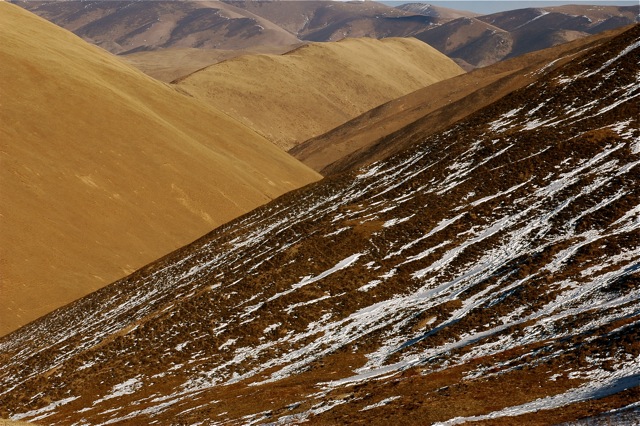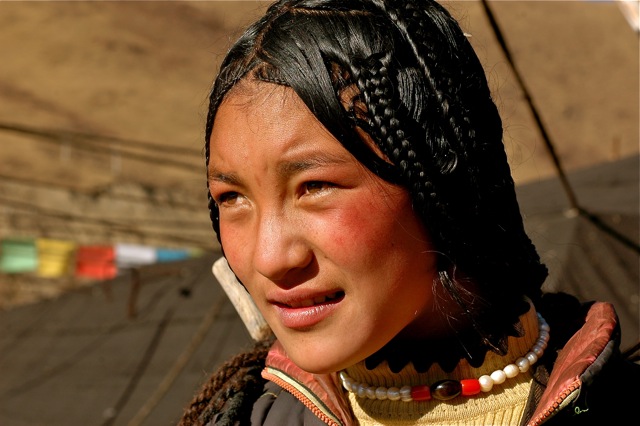“It is in the mountains that fate is decided”
nomadic saying
Delighted that a piece I’ve done on Tibetan nomadic perspectives on Climate Change is up on UNESCO’s “Ethics and Climate Change in Asia-Pacific” page here. For a link straight to the article this is the link here.

It is not change itself necessarily, but the speed of change that rattles the nomads...and they are people with change and adaptation hard-wired into their very core. Snows are disappearing at unprecedented rates, they say.
The article, titled, ‘Withering Heights’ gives a voice to nomads living over 4 km’s in the sky – on, within – and with the lands of the snows. It is largely in their words, using their perspectives, presenting not my own nor any western clinical view of the world up high, but rather the observations of a people who have long lived in the very face of Mother Nature’s every mood.

A generation of teenagers are growing up in a different landscape than their parents.
As usual, the nomadic expressions are simultaneously tangible, poignant, and incredibly metaphorical. Getting their thoughts on lands they know intimately; lands that their forefathers and mothers knew, is a precious necessity in any discussion about this ‘Third Pole’, the Tibetan Plateau.
For the last the 10 years, I’ve been asking the nomads little questions about their world, and what they see changing. What comes across clearly is that it isn’t necessarily change itself that is a problem, but more so the speed and dramatic nature of the change. Here is a little view of those perspectives.

About JeffFuchs
Bio
Having lived for most of the past decade in Asia, Fuchs’ work has centered on indigenous mountain cultures, oral histories with an obsessive interest in tea. His photos and stories have appeared on three continents in award-winning publications Kyoto Journal, TRVL, and Outpost Magazine, as well as The Spanish Expedition Society, The Earth, Silkroad Foundation, The China Post Newspaper, The Toronto Star, The South China Morning Post and Traveler amongst others. Various pieces of his work are part of private collections in Europe, North America and Asia and he serves as the Asian Editor at Large for Canada’s award-winning Outpost magazine.
Fuchs is the Wild China Explorer of the Year for 2011 for sustainable exploration of the Himalayan Trade Routes. He recently completed a month long expedition a previously undocumented ancient nomadic salt route at 4,000 metres becoming the first westerner to travel the Tsa’lam ‘salt road’ through Qinghai.
Fuchs has written on indigenous perspectives for UNESCO, and has having consulted for National Geographic. Fuchs is a member of the fabled Explorers Club, which supports sustainable exploration and research.
Jeff has worked with schools and universities, giving talks on both the importance of oral traditions, tea and mountain cultures. He has spoken to the prestigious Spanish Geographic Society in Madrid on culture and trade through the Himalayas and his sold out talk at the Museum of Nature in Canada focused on the enduring importance of oral narratives and the Himalayan trade routes.
His recently released book ‘The Ancient Tea Horse Road’ (Penguin-Viking Publishers) details his 8-month groundbreaking journey traveling and chronicling one of the world’s great trade routes, The Tea Horse Road. Fuchs is the first westerner to have completed the entire route stretching almost six thousand kilometers through the Himalayas a dozen cultures.
He makes his home in ‘Shangrila’, northwestern Yunnan upon the eastern extension of the Himalayan range where tea and mountains abound; and where he leads expeditions the award winning ‘Tea Horse Road Journey’ with Wild China along portions of the Ancient Tea Horse Road.
To keep fueled up for life Fuchs co-founded JalamTeas which keeps him deep in the green while high in the hills.


